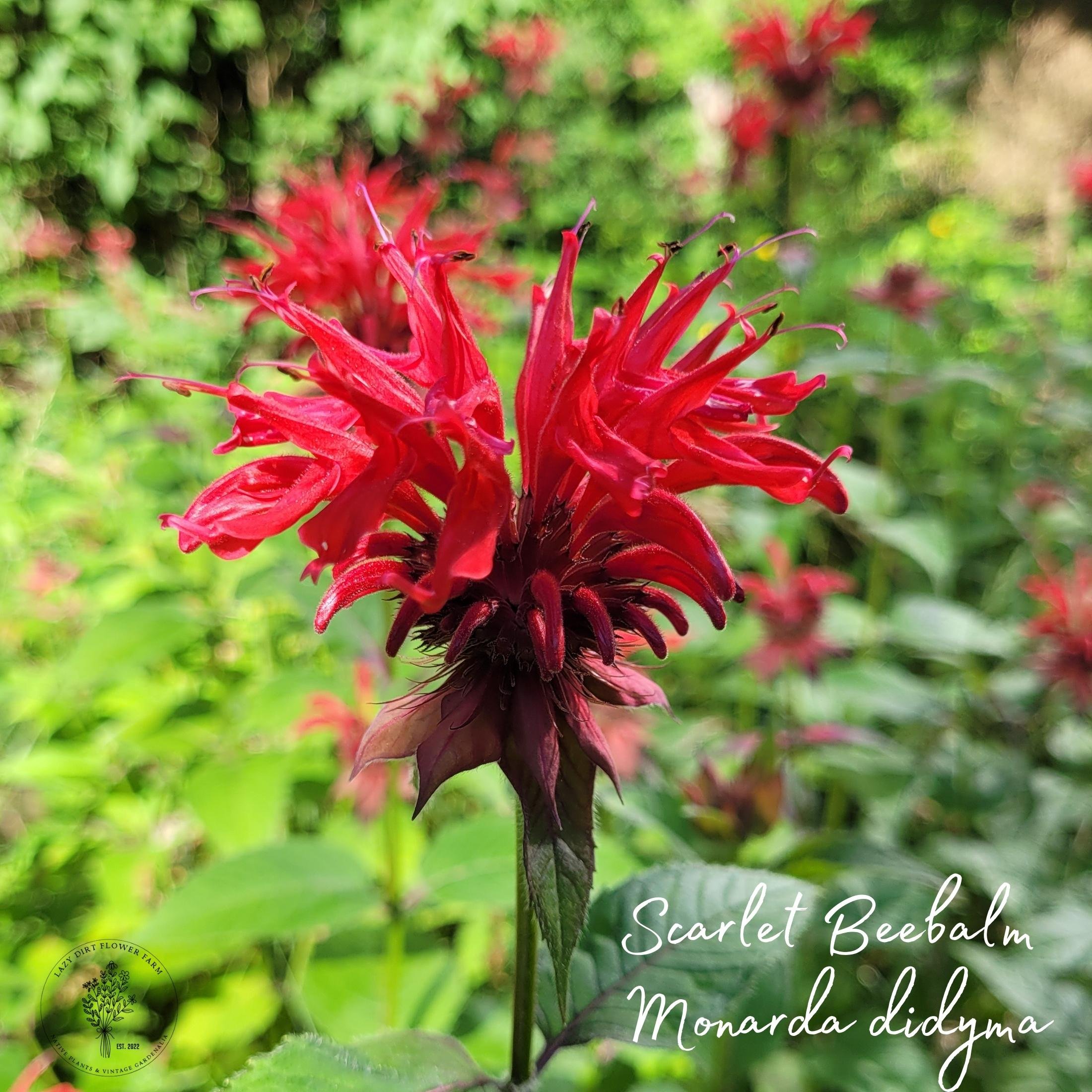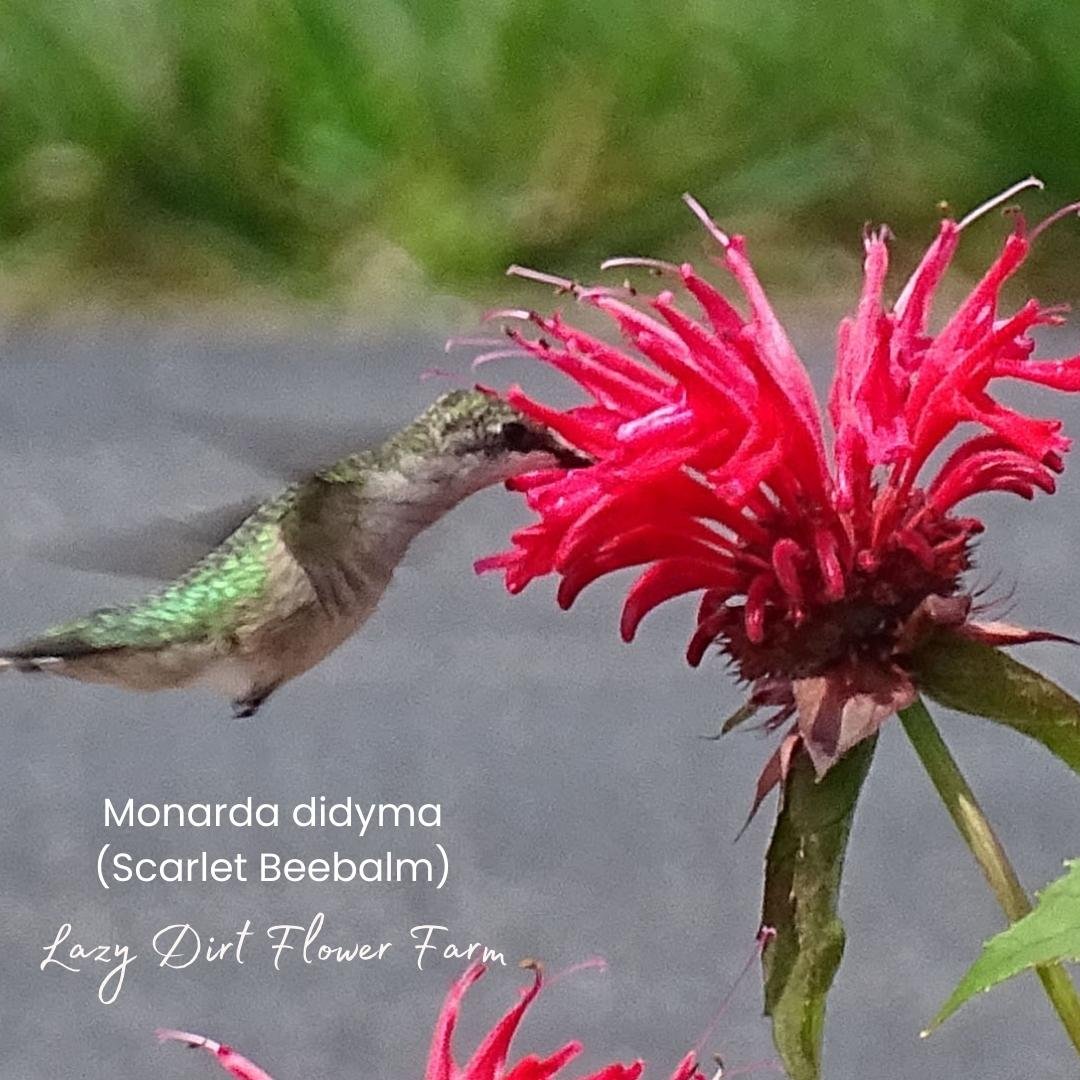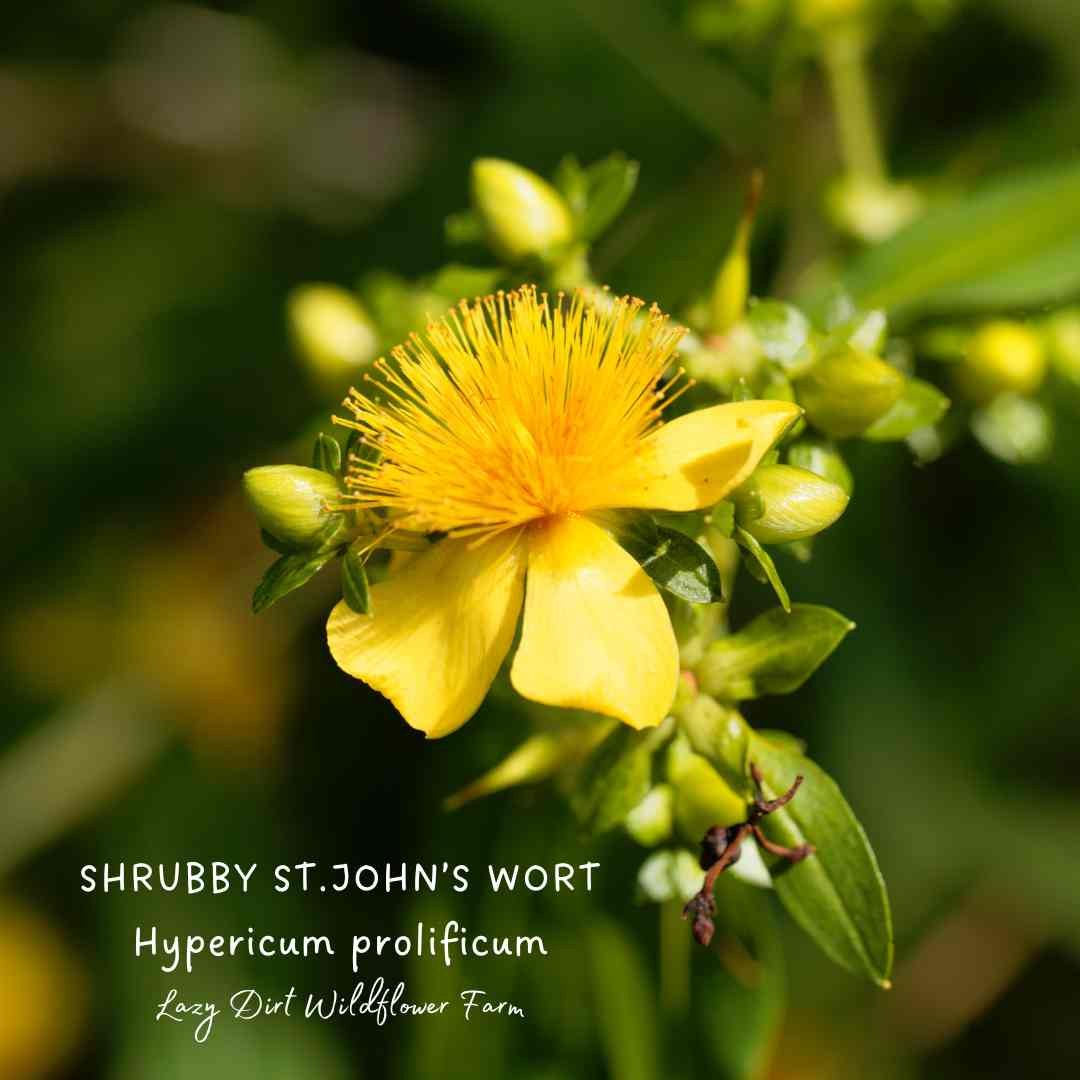Monardas are perennials and will easily self sow to create stunning patches for pollinators. Their sweet mint fragrance wafting on the air is delightful any day but especially on a hot Summer days.
Sunlight One of my patches is next to our enclosed porch so I can spy on the hummingbirds without them seeing me. This patch of Monarda didyma gets sunshine from dawn to mid-afternoon .Flowers here reach up to 2’ tall while those out back in full sun all day reach 4’ tall! Both are in moist rich soil thanks to composting leaves added when planted & that fall there in October.
Powdery mildew does not hurt the plant or flowers. Simply locate Beebalm in the garden where she may “catch the breeze in her hair’ and give 2’ spacing in between plants. As your patch grows transplant some of the seedlings into containers or other areas of your garden.
You can also get more air flow by picking the flowers! Beebalms will then branch and smaller plants will get more sun to grow. So you’ll get flushes of blooms for those hummingbirds all season long!















